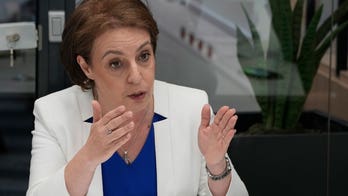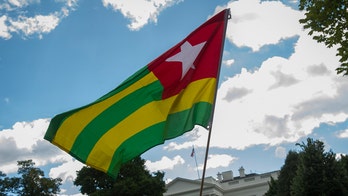Vietnam's National Assembly has confirmed To Lam, the country's top security official, as its new president. While the presidency is largely ceremonial, experts believe the appointment puts Lam in a prime position to become the next Communist Party general secretary, the most influential political role in the country.

On Wednesday, Vietnam's National Assembly confirmed To Lam as the nation's new president. This appointment comes amid an ongoing anti-corruption campaign that has shaken the country's political establishment and resulted in high-level government changes.
Lam, 66, has spent more than four decades in the Ministry of Public Security, rising to the position of minister in 2016. He has played a key role in the government's efforts to combat corruption, overseeing police and intelligence operations.

Vietnam's presidency is largely ceremonial, but Lam's new position as head of state puts him in a strong position to become the next Communist Party general secretary, according to Nguyen Khac Giang, an analyst at Singapore's ISEAS-Yusof Ishak Institute.
The current general secretary, Nguyen Phu Trong, may not seek another term after 2026, and Lam is seen as a potential successor. This appointment would further cement the power of the security apparatus within the ruling party.
Lam's presidency has raised concerns among rights groups and legal experts. During his tenure as public security minister, Human Rights Watch and Amnesty International have criticized Vietnam's harassment and intimidation of critics.
According to Human Rights Watch, in 2021, courts convicted at least 32 individuals for posting critical opinions about the government, sentencing them to multiple years in prison. Police also arrested at least 26 others on fabricated charges.
Under Lam's watch as the country's top security official, Vietnam has faced international criticism for its human rights record and involvement in controversial incidents.
In 2017, German authorities accused Vietnamese agents of abducting and forcefully repatriating a Vietnamese businessman from Berlin. Germany summoned Vietnam's ambassador for talks and expelled its intelligence attaché in response to the incident, which was characterized as a violation of German and international law.
The German Federal Prosecutor's Office has also charged a suspect with aiding and abetting an abduction as a foreign agent, alleging that the kidnapping was carried out by the Vietnamese secret service.
The political instability and uncertainty surrounding Lam's appointment have spooked investors, as Vietnam seeks to position itself as an alternative for companies looking to shift supply chains away from China.
Economic growth has slowed in recent months, and foreign investment has been affected by the ongoing anti-graft campaign and concerns over the rule of law.
The appointment of To Lam as president has significant implications for the future of Vietnam. His strong ties to the security apparatus and his role in the anti-corruption drive could further consolidate the power of the security forces.
However, concerns over human rights, international incidents, and economic stability may present challenges to Lam's presidency and the country's overall development in the years to come.










